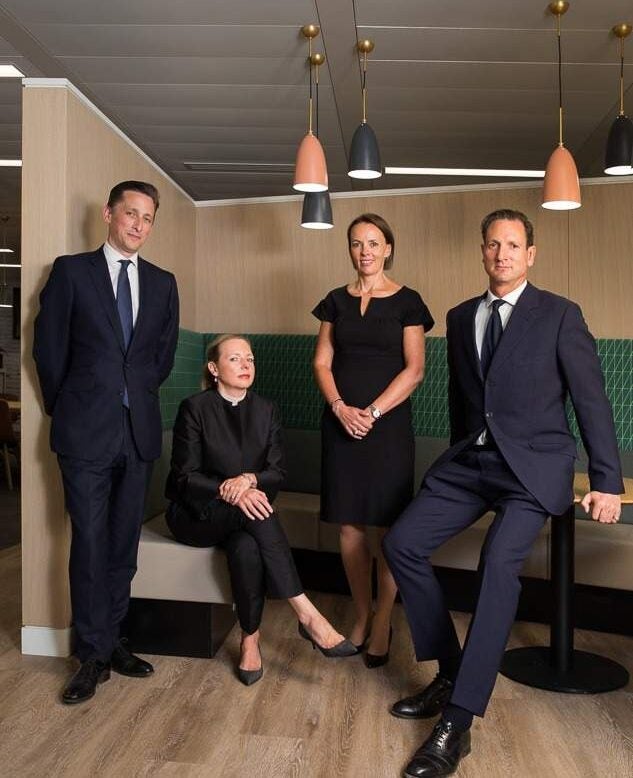
For the UHNW team at HSBC Private Banking, working in partnership is key to client happiness, writes Rasika Sittampram
Charlie Hoffman doesn’t see himself as anything special – despite being an adviser to those holding some of the most complex assets in the world. His role as managing director in the UHNW team at HSBC Private Banking entails looking after clients who have either invested more than $30 million with the bank or have more than $100 million.
‘We are only the sum of our clients,’ Hoffman says, ‘and how we look after them’. Many of his clients are primary wealth creators, such as entrepreneurs or investment professionals who have founded private equity or hedge funds; however, equally they may be widows and divorcees. All these represent ‘extremely long-term’ relationships with the bank.
‘Those who put the client at the centre of everything they do are likely to produce a successful outcome for the client,’ Hoffman says. ‘That will also create a successful outcome for the bank’.
He respects the foundation of the bank more than 150 years ago, established originally to service clients effectively in Hong Kong where others had failed to do so from London. These long-term relationships continue to be in evidence, with the first board meeting in 1865 noting five of the bank’s initial customers: the third name is still banking with HSBC today.
There are very few banks that share the ‘universal model’ HSBC Private Banking is part of, on the back of its heritage as the Hong Kong and Shanghai Banking Corporation. ‘If you believe that the growth engine of the economy for the next 25 years is going to be in emerging markets, clients need to partner with someone who has a large footprint in those regions,’ says Christo Scott, managing director in the UHNW team.
Scott also cites the advantage of cross-collaboration that clients can benefit from. ‘We’re connecting corporate and private clients from around the world with each other,’ he adds. The UHNW segment is central to the growth ambitions of HSBC’s UK Private Bank, based within its Mayfair offices.
In fact, Scott reveals ‘very clear goals’ to double the size of its business, by making its UHNW client servicing even more globally connected. This is where Nathalie Gorshkova’s expertise comes in, as head of the UHNW international desk that the bank created in December 2018. Gorshkova oversees the affairs of international clients, which can involve anything from cross-border lending to financing lifestyle assets such as private jets and superyachts.
‘Clients are often family-centric,’ she explains. ‘They are investing at a semi-institutional level.’ This requires her team to connect with the corporate banking and investment banking arms of the business too. ‘It’s a small but very dedicated team,’ she adds.
HSBC Private Banking uses its heritage as a lending specialist to offer stellar credit solutions for some of the most complex issues that UHNWs face today. Hoffman’s highlight this year has been structuring a £200 million loan against future revenue streams of a private business, which involved ‘many late nights and weekends’ as well as the expertise of his colleagues in both the investment banking and corporate banking teams.
The cross-collaboration of ideas and capabilities across various elements of the HSBC Group is a common occurrence, which enables it to give truly bespoke solutions to UHNWs. ‘As a bank, we have always had a focus on UHNW clients,’ says Nancy Ross, a senior director who assists Hoffman in managing key clients.
From a client’s perspective, Ross and the rest of the relationship team enable access to the expertise of the ‘virtual family office’ – a concentric wheel of offerings revolving around a client’s needs.
‘We’re the quarterbacks,’ Ross quips when asked about the role the team plays, acting as an interface between UHNWs and the private bank’s core services. The ‘four pillars’ are an investment team (outlining the details of the investment offering), a credit advisory team, global solutions group banker (providing a direct link to HSBC’s investment bank), and a wealth planning team – setting the brand apart from competitors.
Ross is especially proud of the fourth offering, which provides ancillary services to help families map issues such as inheritance tax plans, philanthropy and succession planning. She gives the example of a corporate client facing an eventual liquidity event worth a few hundred million pounds.
‘We aim to introduce the client to a wealth planner well before that transaction actually happens,’ she says. ‘Years before, if we’re doing our job properly.’
Hoffman highlights another key differentiator as HSBC’s distinct strength in alternatives, which includes private equity, hedge funds and real estate. ‘HSBC is one of the top asset allocators to private equity in the world,’ he states.
This brings huge co-invest and secondary opportunities. Meanwhile, industry sources say HSBC has the largest internal secondary market for hedge funds, especially those managers who are now hard closed and investors cannot access. Of course, post-financial crisis, a private bank’s strength and stability are as important as its product capabilities. Scott comments that HSBC is ‘one of the best capitalised global banks’.
He argues that this sturdy balance sheet offers unrivalled support to the world’s wealth creators. Additionally, it provides a very safe place for their deposits, cash and banking services: ‘Providing a safe home for cash and banking may not be the most glamorous part of the wealth management industry, but it enables us to understand all our clients in great depth’.
Hoffman agrees. ‘We bank for clients, invest for clients and lend to clients,’ he says. ‘But, most importantly, we listen to clients and what they want.’
Photography: David Harrison
This article first appeared in issue 69 of Spear’s magazine, available on newsstands now. Click here to buy and subscribe.







